For the first time in Zambia’s history, Mobile Court sessions are being conducted within correctional facilities, an innovative step made possible through UP Zambia’s pioneering efforts. Launched on February 20, 2025, at Lusaka Central Correctional Facility, the Mobile Courts initiative is reshaping how justice is delivered to individuals in pre-trial detention, many of whom have waited years for their day in court.
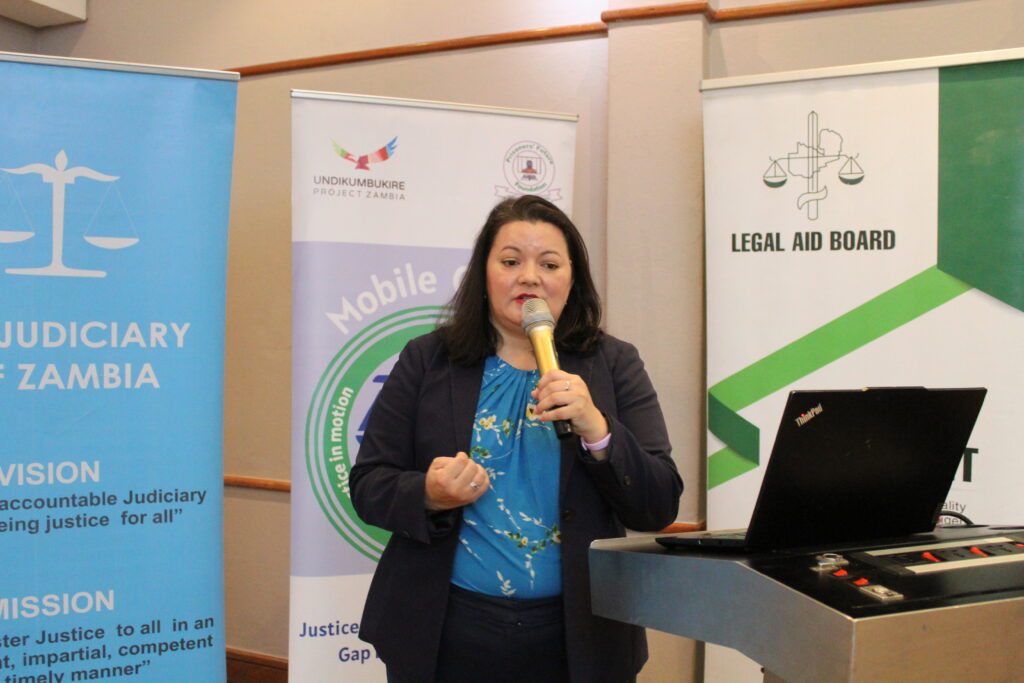
On 23rd June 2025 during the orientation on Mobile Courts, key justice stakeholders from Zambia and Malawi gathered to reflect on their experiences since the launch and to share their expectations for the future of Mobile Court’s, particularly with the anticipated involvement of the High Court. The consensus was clear: plea bargaining, when implemented effectively through Mobile Courts, can significantly reduce case backlogs and pre-trial detentions, ultimately streamline the justice process and deliver timely access to justice.
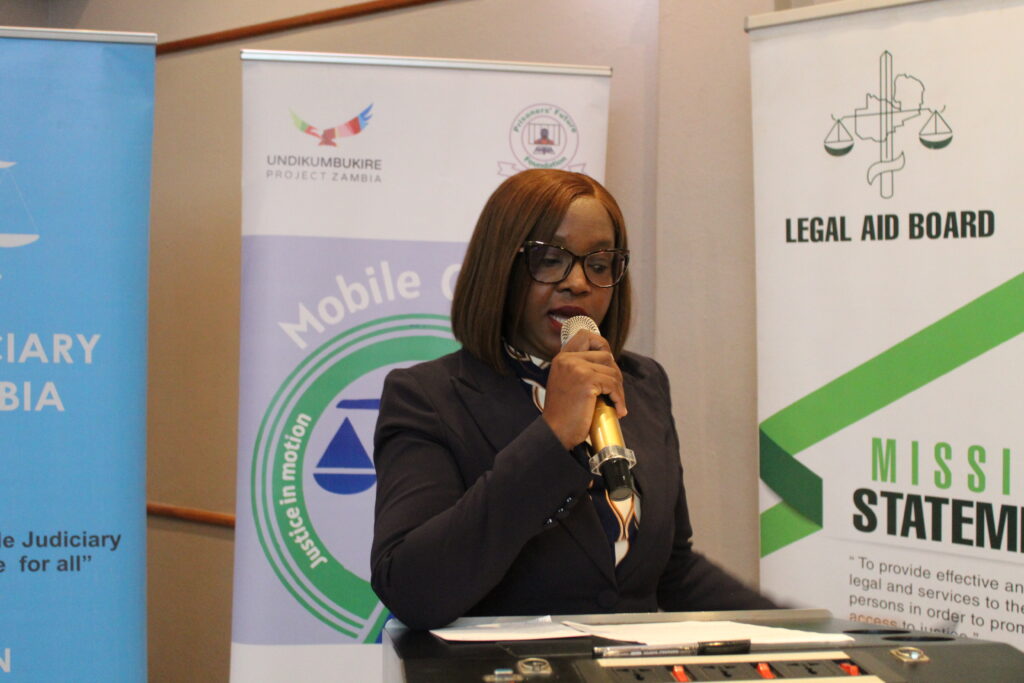
Legal Aid Board (LAB) highlighted that a growing number of clients have seen their cases resolved or advanced through mobile court sessions. The introduction of plea negotiations has proven especially effective in speeding up case resolutions that would have otherwise gone to full trial. Though still in its early stages, the Mobile Courts is already showing tangible results.
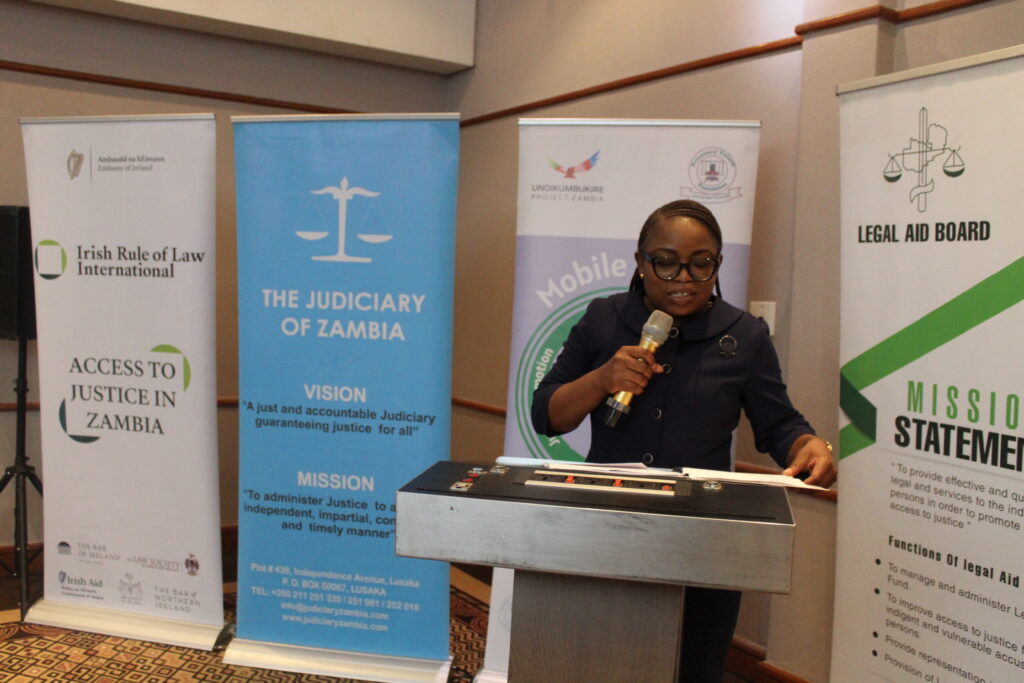
The National Prosecution Authority (NPA) noted a significant improvement in the management of pending cases. The presence of courts within correctional facilities means the judiciary has direct insight into the conditions and challenges faced by pre-trial detainees. The collaboration between the NPA, LAB, and UP Zambia has strengthened case identification and cause listing for mobile court sessions, making the entire system more responsive.
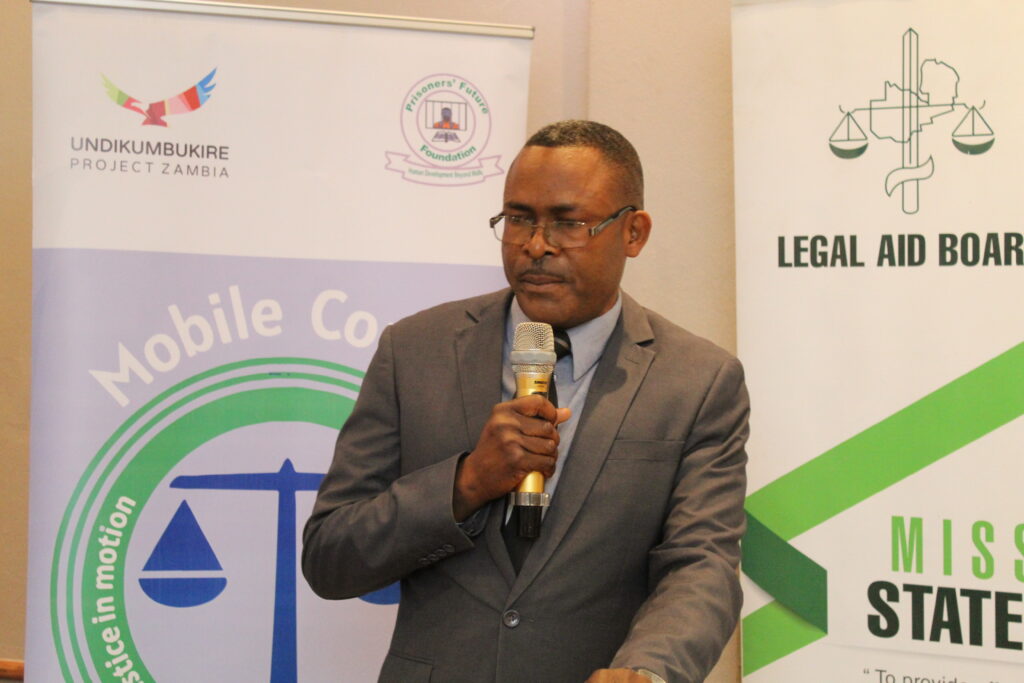
From the perspective of the Zambia Correctional Service (ZCS), the Mobile Courts have restored inmates’ faith in the justice system. With clearer timelines and visible progress in their cases, inmates are less likely to attempt escape and more willing to wait for their turn in court. The service has called for expansion of mobile courts beyond places along the line of rail to reach more underserved communities.
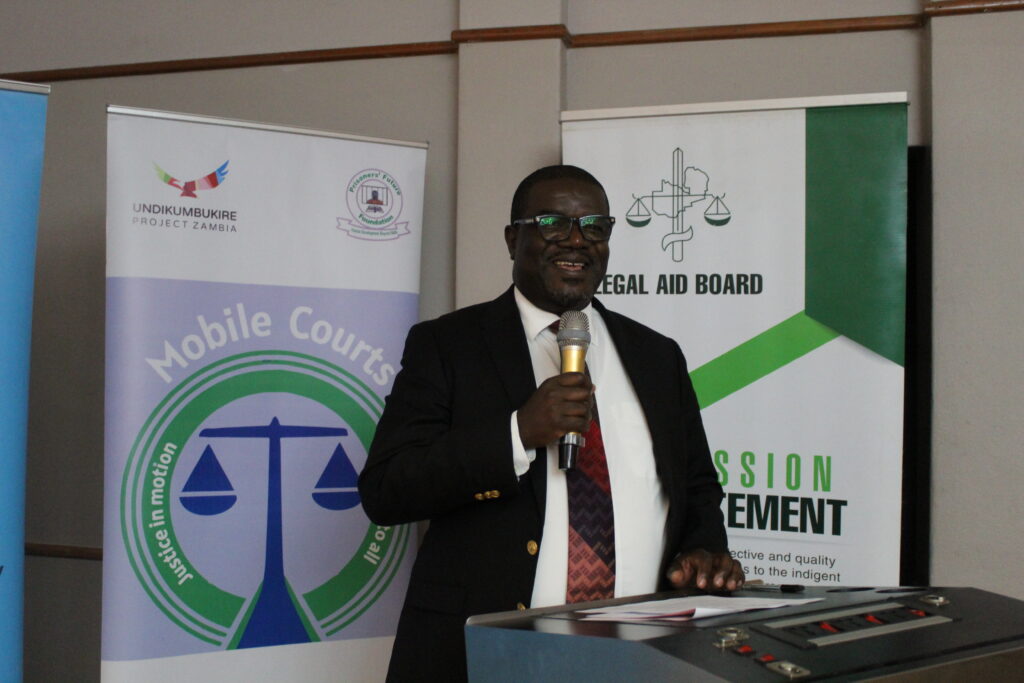
Judge-in-Charge Charles Zulu emphasized the importance of the High Court’s involvement. Following successful sessions conducted by subordinate courts, he emphasized that justice should not be confined to a courtroom building quoting Section 18 of the High Court Act, which defines a court as a judicial officer. He called for stronger partnerships between all justice sector players and civil society organizations (CSO’s), commending UP Zambia for its role as an “extra pair of eyes and ears” for the judiciary.
Judge Zulu also acknowledged the careful screening of cases by NPA, LAB, and UP Zambia, noting that 16 cases were scheduled to be heard the following day at Mwembeshi Remand Correctional Facility.
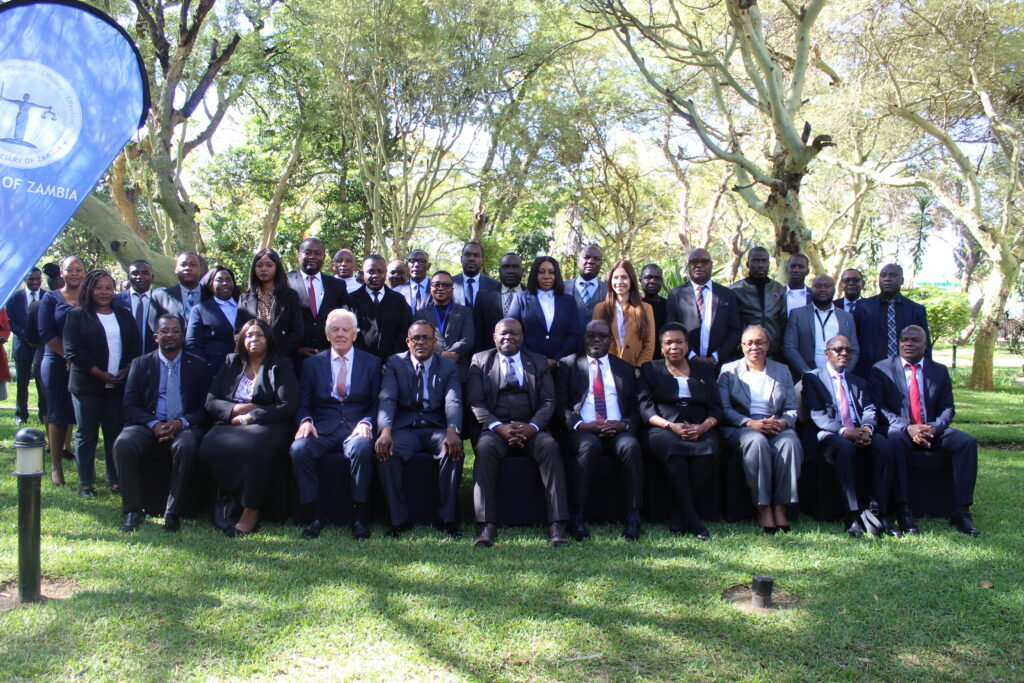
Key stakeholders present at the Mobile Courts Orientation included the Judge in Charge of Zambia, the Judge in Charge of Malawi, the Chief Resident Magistrate, the National Prosecution Authority (NPA), the Legal Aid Board (LAB), the Zambia Correctional Service, UP Zambia and the Prisoners Future Foundation(PFF).
UP Zambia’s Mobile Courts is a powerful reminder that when justice is brought closer to the people, especially those most marginalized systems begin to change. Through collaboration, and a shared commitment to access to justice, Zambia is charting a new course where every individual, regardless of circumstance, can be heard.
